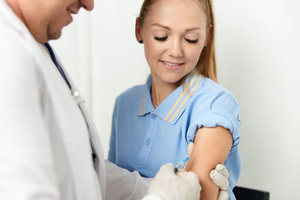Book urgent care & walk-in clinics near me in Houston, TX
Own a clinic? Add your location.
Help patients book appointments with you on Solv. It's free!
21 instant-book locations

NeuMed Urgent Care + IV Therapy, Montrose
NeuMed Urgent Care + IV Therapy
TODAY
View more
NeuMed Urgent Care + IV Therapy, Washington Ave.
NeuMed Urgent Care + IV Therapy
TODAY
View more
Privia Virtual Clinic, Texas
Privia Virtual Clinic
TODAY
View more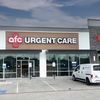
AFC Urgent Care, Antoine West
AFC Urgent Care
TODAY
View more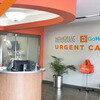
Memorial Hermann- GoHealth Urgent Care, Washington
Memorial Hermann- GoHealth Urgent Care
TODAY
View more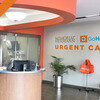
Memorial Hermann- GoHealth Urgent Care, Town And Country
Memorial Hermann- GoHealth Urgent Care
TODAY
View more
Memorial Hermann- GoHealth Urgent Care, Royal Oaks
Memorial Hermann- GoHealth Urgent Care
TODAY
View more
Memorial Hermann- GoHealth Urgent Care, Kingwood
Memorial Hermann- GoHealth Urgent Care

NeuMed Urgent Care + IV Therapy, Houston Heights
NeuMed Urgent Care + IV Therapy
TODAY
View more
NeuMed Urgent Care + IV Therapy, Galleria/Tanglewood
NeuMed Urgent Care + IV Therapy
TODAY
View more
NeuMed Urgent Care + IV Therapy, Spring Branch
NeuMed Urgent Care + IV Therapy
TODAY
View more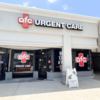
AFC Urgent Care, West University
AFC Urgent Care

AFC Urgent Care, Channelview
AFC Urgent Care
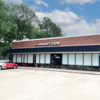
AFC Urgent Care, Kingwood
AFC Urgent Care
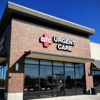
AFC Urgent Care, Katy - Greenhouse Road
AFC Urgent Care

AFC Urgent Care, Clear Lake
AFC Urgent Care

NextCare Urgent Care, Clear Lake - a BSWHealth partner
NextCare Urgent Care

Urgent Care for Kids, Brookhollow
Urgent Care for Kids

Urgent Care for Kids, Tanglewood
Urgent Care for Kids

Urgent Care for Kids, Channelview
Urgent Care for Kids

Urgent Care for Kids, Willowbrook
Urgent Care for Kids
Own a clinic? Add your location.
Help patients book appointments with you on Solv. It's free!
Getting to Know the Houston Area
Houston is a sprawling metropolis known for its rich culture and energetic communities. It is equipped with numerous urgent care clinics strategically located throughout the city for convenient medical care. This accessibility ensures that residents and visitors alike can easily find medical assistance when needed.
In Greater Uptown, home to the iconic Galleria Mall and the stunning Williams Tower, clinics like Next Level Urgent Care are conveniently situated near the bustling shopping and dining scene, bounded by Loop 610 and Westheimer Road. Just a short drive away in Downtown Houston, where attractions such as Minute Maid Park and Discovery Green draw crowds. You can also find OnPoint Urgent Care and Post Oak Emergency Room and Urgent Care — both ensuring that quality care is available amidst the urban excitement.
Midtown, known for its lively atmosphere and cultural venues like the Continental Club, features Urgent Care for Kids along Bagby Street, easily accessible from I-45 and US-59. Meanwhile, Montrose, with its artistic flair and landmarks like the Menil Collection, is served by CareNow Urgent Care along Westheimer Road.
The Houston Heights area, celebrated for its historic charm and community spirit, has an urgent care facility at TopCare Urgent Care, located on Shepherd Dr. near the scenic Heights Boulevard and easily reachable from I-10. Westchase, known for its business district and proximity to the Houston Country Club, offers urgent care services through OnPoint Urgent Care along Richmond Avenue, providing quick access for busy professionals.
In the Memorial area, where the lush Memorial Park and Memorial City Mall attract visitors, patients can find urgent care at Memorial Hermann-GoHealth Urgent Care, conveniently located along the Katy Freeway. River Oaks, an upscale neighborhood featuring the River Oaks Shopping Center, is home to Urgent Care of River Oaks, ensuring that quality healthcare is just around the corner for all River Oaks residents and passersby.
Greenway/Upper Kirby, with its vibrant dining and shopping options, has another OnPoint Urgent Care clinic location situated near Levy Park, easily accessible from Loop 610. For those in the Energy Corridor, known for its corporate offices and recreational spaces such as Terry Hershey Park, a CareNow Urgent Care is a reliable clinic location along I-10.
The Museum District, rich in culture with institutions like the Houston Museum of Natural Science, hosts urgent care facilities such as Houston Methodist Urgent Care, located conveniently near US-59. In the West University Place area, residents can visit Next Level Urgent Care, ensuring quick access to medical services near Rice University.
Clear Lake, famous for the Johnson Space Center and Baybrook Mall, features American Family Care Urgent Care, making it a great destination for both tourists and locals. Alief, known for its vibrant community and proximity to Chinatown, is served by HOPE Alief Clinic, easily accessible from Beltway 8.
As you explore the diverse neighborhoods of Houston, you’ll find that urgent care clinics are strategically placed near major highways and landmarks, including I-45, I-10, and US-59. Whether you’re enjoying a day at the Houston Zoo, attending an event at NRG Stadium, or simply navigating the city, rest assured that quality medical care is always within reach in this dynamic city.
How Much Does Urgent Care Cost In Houston?
The cost of urgent care services in Houston can vary widely based on several factors, including the type of treatment required, the specific clinic you visit, and whether or not you have insurance. Generally, urgent care facilities offer a more affordable alternative to emergency rooms for non-life-threatening conditions, often resulting in lower out-of-pocket expenses.
For patients with insurance, co-pays can differ based on the plan, with some insurers covering a significant portion of the visit. Those without insurance may find that clinics offer competitive pricing, often providing transparent fee structures for various services such as consultations, diagnostic tests, and minor procedures.
Additionally, many urgent care clinics in Houston may have payment plans or financial assistance options to help manage costs. It's advisable to check with individual clinics about their pricing policies and any potential additional fees, such as those for lab work or imaging services, to get a clearer picture of what to expect financially. Overall, while costs can vary, urgent care remains a cost-effective option for many seeking prompt medical attention.
What is the cost of an urgent care visit in Houston without insurance?
The cost of an urgent care visit in Houston without insurance typically ranges from moderate to high, depending on the specific clinic and the nature of the medical services provided. Patients can expect to pay for the initial consultation, which may include basic examinations and treatments, as well as additional fees for any tests or procedures performed, such as lab work or imaging. Many clinics offer transparent pricing, so it's advisable to inquire about specific costs beforehand to avoid unexpected expenses. Overall, while urgent care is generally more affordable than a visit to the emergency room, patients should still be prepared for out-of-pocket expenses.
What Conditions are Treated in Houston?
Urgent care clinics in Houston are equipped to handle a wide range of medical conditions, providing convenient and timely care for non-life-threatening issues. These clinics often offer services that include diagnostic testing, such as X-rays and laboratory services, making them an excellent choice for various injuries and illnesses.
Common conditions that Houston urgent care facilities can typically treat include:
-
Sprains and strains
-
Fractures (including those requiring X-rays)
-
Cuts and lacerations
-
Burns
-
Coughs and colds
-
Allergies and asthma
-
Sinus infections
-
Bronchitis
-
Urinary tract infections (UTIs)
-
Ear infections
-
Skin infections and rashes
-
Strep throat
-
Nausea and vomiting
-
Diarrhea
-
Abdominal pain
-
Vaccinations and immunizations
-
Sports physicals
-
Wellness checks
-
X-rays for fractures and other injuries
-
Lab tests (such as blood tests or urine tests)
-
IV hydration therapy
-
Treatment for minor allergic reactions
-
Suturing of wounds
Urgent care clinics in Houston provide a valuable resource for individuals seeking immediate medical attention for these conditions, often with shorter wait times and lower costs compared to emergency room visits.
Houston Urgent Care FAQs
Where can I find the best urgent care center in Houston?
To find the best urgent care center in Houston, you can start by researching online reviews and ratings on platforms like SolvHealth. Additionally, asking for recommendations from friends, family, or your primary care physician can help you identify reputable clinics. Look for centers that are conveniently located, have experienced staff, and offer the services you may need.
What are the typical wait times at Houston urgent care centers?
Typical wait times at urgent care centers in Houston can vary depending on the time of day and the clinic's location. Generally, patients can expect wait times ranging from 15 minutes to an hour. During peak hours, such as evenings and weekends, wait times may be longer, so it's advisable to check with the clinic or use online check-in services when available.
Which urgent care centers in Houston are open 24/7?
At the time of this publication, there are no urgent care centers in Houston that operate 24,7. However, it's always a good idea to verify the hours of operation before visiting, as this information can change.
Do urgent care centers in Houston accept walk-ins, or do I need an appointment?
Most urgent care centers in Houston accept walk-ins or same-day scheduling — both options allow patients to receive care without waiting long hours in an emergency room or several days for a primary care doctor. However, some clinics offer online check-in or appointment scheduling to help reduce wait times. It’s best to check with the specific center for their policies regarding walk-ins and appointments.
Can I get a COVID-19 test at an urgent care center in Houston?
Yes, many urgent care centers in Houston offer COVID-19 testing, including both PCR and rapid tests. These tests are typically available for symptomatic individuals, as well as for those needing testing for travel or other purposes. It's advisable to call ahead or check the clinic's website for testing availability and any requirements.
What other services do Houston urgent care centers provide beyond basic medical care?
Beyond basic medical care, Houston urgent care centers often provide a variety of services, including diagnostic imaging (like X-rays), lab testing, vaccinations, physical exams, and treatment for minor injuries and illnesses. Some clinics may also offer specialized services such as IV hydration therapy and occupational health services.
Are there pediatric urgent care centers in Houston?
Yes, there are pediatric urgent care centers in Houston that specialize in treating children and adolescents — including Urgent Care for Kids with locations on Dacoma St., Highway 6, and Tomball Parkway. These facilities are designed to cater to the unique needs of younger patients and often provide a child-friendly environment. It's advisable to look for clinics specifically labeled as pediatric urgent care for the best experience.
How do I choose between an emergency room and urgent care in Houston?
When deciding between an emergency room and urgent care in Houston, consider the severity of the medical issue. Urgent care is suitable for non-life-threatening conditions that require prompt attention, such as minor injuries or illnesses. In contrast, an emergency room is the best choice for severe or life-threatening situations, such as chest pain, difficulty breathing, or major trauma.
What are the most highly rated urgent care centers in Houston?
Some of the most highly rated urgent care centers in Houston include Next Level Urgent Care, CareNow, and Top Care of Houston. These clinics are often praised for their short wait times, knowledgeable staff, and comprehensive services. Checking online reviews and ratings can help you find the best urgent care option for your needs.
Top 7 Local FAQs About Houston Healthcare
Why do urgent care centers close at 8 pm?
Urgent care centers typically close at 8 pm to balance the demand for services with operational costs. Many clinics find that patient volume decreases significantly in the late evening, making it less feasible to remain open. This schedule allows them to provide quality care during peak hours while ensuring staff can maintain a healthy work-life balance.
Can an urgent care provider in Houston treat more serious conditions?
Urgent care providers in Houston can handle a variety of non-life-threatening conditions, but they are not equipped to treat serious medical emergencies. For more severe issues, such as major trauma, heart attacks, or strokes, patients should seek care at an emergency room, where specialized resources and staff are available.
What do urgent care centers treat?
Urgent care centers treat a wide range of medical conditions, including minor injuries like sprains and fractures, infections such as strep throat and UTIs, respiratory issues, and gastrointestinal problems. They also provide services like vaccinations, physical exams, and diagnostic imaging, making them a convenient option for non-emergency medical needs.
Low-cost healthcare with no insurance?
Low-cost healthcare options without insurance are available through community health clinics, urgent care centers, and sliding scale providers that adjust fees based on income. Many urgent care facilities offer transparent pricing for uninsured patients, allowing them to access necessary medical services at a more affordable rate.
What is healthcare for low-income people in Texas?
Healthcare for low-income individuals in Texas includes programs like Medicaid, which provides coverage for eligible families and individuals, and the Children's Health Insurance Program (CHIP) for children. Additionally, federally qualified health centers (FQHCs) offer comprehensive services on a sliding fee scale, ensuring access to care for those with limited financial resources.
Which Houston urgent care centers offer COVID-19 testing?
Several urgent care centers in Houston offer COVID-19 testing, including Next Level Urgent Care and CareNow. These clinics provide both PCR and rapid testing options for symptomatic individuals and those needing tests for travel or other requirements. It's recommended to check with specific centers for availability and testing protocols.
Does Houston or Dallas have better hospitals?
The quality of hospitals in Houston and Dallas can vary based on specific services and specialties. Houston is home to the Texas Medical Center and Memorial Hermann-Texas Medical Center — both are some of the largest medical complexes in the world, known for its advanced healthcare facilities and research institutions. Dallas also has highly regarded hospitals, but many consider Houston's medical resources and expertise, particularly in specialized care, to be among the best in the state. Ultimately, the choice may depend on individual needs and preferences.
Common Health Insurance Companies in Texas
In Texas, several health insurance companies provide a range of coverage options to residents, catering to diverse healthcare needs. Among the top providers are:
-
Blue Cross Blue Shield Association
-
Aetna
-
UnitedHealthcare
-
Cigna Health and Life Insurance Company
-
Oscar Health
-
Kaiser Permanente
-
Scott and White Health Plan
-
Superior HealthPlan
-
Community Health Choice
-
Humana
-
Molina Healthcare Inc
-
Ambetter
-
UnitedHealthcare Insurance Company
Houston Healthcare News in 2024
-
Urgent Care In Clear Lake Open After Hours
UT Health Houston (February 15, 2024) -
Memorial Hermann-GoHealth Urgent Care clinics in Cypress, Manvel
Community Impact, Houston (Oct 9, 2024) -
Urgent Care for Kids Expands Network of Care in Houston, Texas
Press Release (July 15, 2024)
Solv has strict sourcing guidelines and relies on peer-reviewed studies, academic research institutions, and medical associations. We avoid using tertiary references.
Related Searches
DOT Exam in Houston
Ear Wax Removal in Houston
Sports Physicals in Houston
A1C Test in Houston
Allergy Testing in Houston
Basic Metabolic Panel in Houston
Blood Test in Houston
CMP Test in Houston
Cholesterol Test in Houston
Diabetes Test in Houston
Diagnostic Test in Houston
Drug Test in Houston
Glucose Test in Houston
Hepatitis test in Houston
Mono Test in Houston
RSV Test in Houston
STD Testing in Houston
Strep Test in Houston
TB Test in Houston
Urinalysis in Houston
Vitamin D Test in Houston
Aetna Urgent Care
Blue Cross Blue Shield Urgent Care
Cigna Urgent Care
COVID-19
Flu
United Health Urgent Care
» All services in HoustonFind urgent care
Nearby cities
Everyday Healthcare, Simplified
Expert advice to help you live your best life


